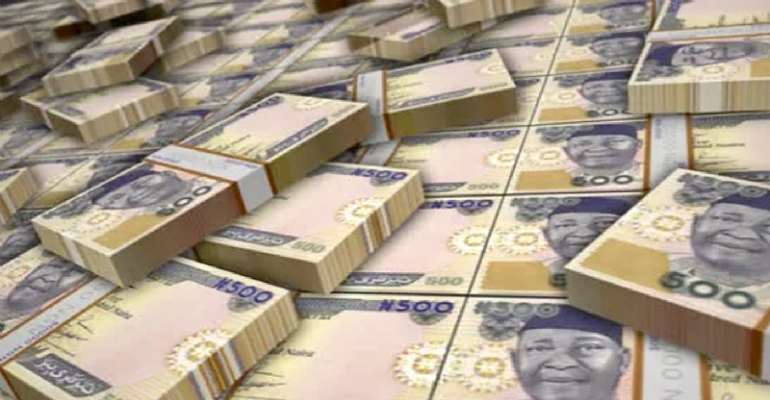Naira, The King

For several months , naira- related issues have principally hugged our television channels and unarguably topped most of our radio programmes. It seems every gathering or place gets awash with the same matter - naira . Our religious homes and centres were equally not spared. School children, whatever their colour, age, and tribe are similarly not exempted as the phrase " no cash" became the new anthem in their various homes. Going further, it has been reported that almost every telephone call from the villagers to the city dwellers interestingly and sadly starts and ends with " naira" or " no cash". With this in mind, one is left with only one choice, which is to salute the naira king.
A king, we know , is supposed to increase in value and global rating, however, the opposite is the truth in this case. The naira has been questionably scarce for some sorts of reasons; from economic to political. Naira is being mopped up to promote a cashless economy, some have highlighted, with the others astutely reading and sensing a political undertone. To the extremist or fundamental spiritists, in fact, this scarcity is the handiwork of the devil. Whatever it is , what can Nigerians remember this scarcity for.
A moment of unforgivable and unforgettable hardship - yes - at least, that was the general experience. Hardship, in the language of a layman's, is a time when everything is hard and difficult. Getting money from the bank is more than a day's job as queues barely show signs of fatigue. Proceeding from the exterior of the bank down to the cashiers could take mountains of hours. Time meant for relaxation , work, socialization among others is wasted on the queue. I could hardly imagine adults and the elderly in an idiotic file and fight for cash. To make matters worse, the queue was not for free doling of cash , lest , one would have argued that the people were there for personal gains.
This period, in my thought, is a season of exploitation and hyper - inflation. To exploit means to treat people unfairly. Regarding this, encounters with the POS agents are worth narrating. While a few had a soft shoulder to have their fellow countrymen rest their headachy head, for the others, it was a time to hit it big. Outrageous interest and absurd charges dominated the business. These ones deserve a national award for a callous business they have done. The extortion goes on to some filling stations with a terrible eye for an overnight wealth. You will either have to cough out the cash or pay charges for using their POS.
Prices of essentials are regrettably found to be high, too. Who cares? Does anyone really care? In Nigeria, greed is the attraction for businesses. The sustenance of the supply chain is secondary. A moderate profit just doesn't make sense. It was a time we may describe " buy cheap and sell very high". This period barely has anything good to be written or spoken about. Indeed, it was a catastrophe.
To draw the curtains on this matter, this government left many legacies and memories. As for most Nigerians, they will live to remember among others, the era of the 'Naira king' , when naira became artificially scarce and invisible in many homes. A period when banks were set ablaze to express the masses' anger. A time when Nigerians were purchasing their own currency and above all, a time when the government " sidon - look".
Samuel Ogunnaike writes from Lagos.
